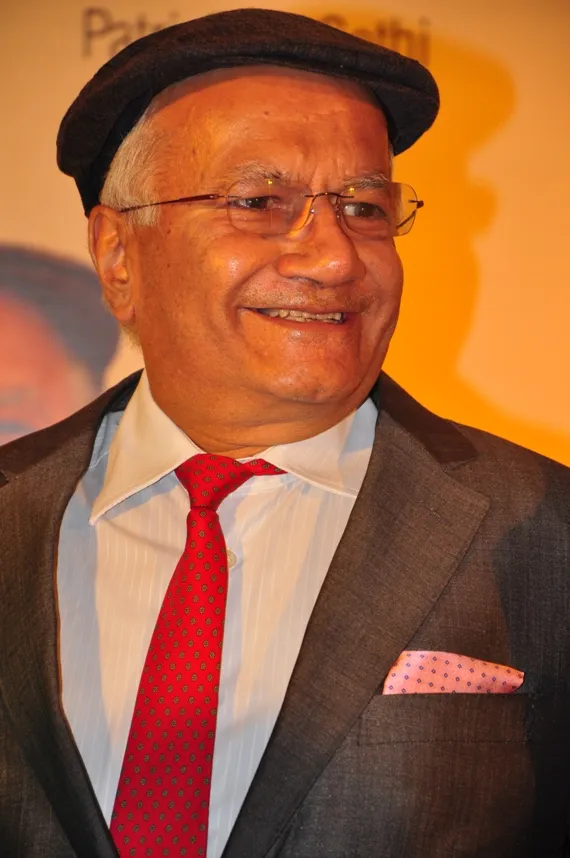Taste the thunder with cola man Ramesh Chauhan
Had Big Bite succeeded as a brand it would have taken the thunder out of McDonald’s and KFC. The only reason I am even comparing it with the international brands is because of its founder Ramesh J Chauhan (RJC). RJC is founder of Bisleri International and creator of successful brands like Thums Up, Limca, Gold Spot, Maaza and Citra – which he later sold to Coca-Cola. Such has been the success of these soft drinks that they continue to be a formidable force in the market.
RJC single-handedly created these brands and even 20 years after he made the sale, the equity of these brands keeps customers loyal. It is quite possible that Big Bite would have been another success story had RJC invested the same time and effort he did on the soft drink brands.
It is a rare opportunity to sit across the table and talk to someone who has built six successful brands in his lifetime. I came back with some valuable lessons.

Listen to your inner voice
For any business, understanding your customer is the key and RJC holds it dearly. He belongs to the time when the world of entrepreneurship did not exist in the way it does today. “We did things that came naturally and there was no great degree of planning. We worked more on gut feel rather than a studied strategy. You went along with the flow and kept correcting yourself and your working style as you progressed,” he says.
RJC advises not to be bogged down by things like market share and competition. “Do what you have to do to grow -- listen to the inner voice. You do not need pie charts and market figures for that,” he states. “If my competitor is growing can I ask him to stop growing because my boss is shouting? That is not possible, right? So the best thing to do is to keep your eye on the ball, be focused and keep correcting yourself as you move ahead. You will never fail,” he advises.
RJC and his father Jayantilal Chauhan relied on their inner voice and conviction to build their company. The strategies they adopted in the work place were old school but effective. They displayed blackboards in the office to keep tabs on sales, and were hands on with the team guiding and motivating them. “Nobody is going to tell you what to do. If you don’t know what you are supposed to do, God help you. If your competition is gaining market share it is because you do not have a presence there. Shopkeepers will keep products that will fetch them better margins, if you cannot convince them to stock your products the first time, keep going back. Be persistent,” he adds.
Build a good team
At Bisleri International, RJC has regularly identified and promoted talent from within. Therefore, it is not surprising to see people who have been working there for many years. For RJC the real worth of a person does not come from his qualifications alone. “If one has the hunger to learn he/she can probably do much more than someone who comes with an Ivy League degree,” he feels.
One reason he says Big Bite failed was not having the right people. “Everyone wanted to be associated with successful brands nobody wanted to look at new products. By the time we realized what was wrong much time was lost. It is important to have people who are willing to adapt and realign themselves to newer challenges,” he says.
The Brand Man

RJC has always been a believer in brands and the role they play in building a business. “Business is all about brands. Be it soap, rice, salt or car, finally it boils down to the brand and how it is perceived,” he says. He acknowledges the fact that he is credited with creating many brands, but says it is the advertising agencies they hired who should be celebrated. “My concept was simple: I wanted a small agency where the boss would be looking at our advertising account as his most important account,” says RJC about his formula.Limca was marketed with an Indian concept based on the ubiquitous nimbu-pani. Journalist and advertising strategist K Kurien, who had made Amul butter a household name, provided inputs for the campaign. Maaza, inspired by Mangola, a mango drink sold by Duke’s, was also managed by K Kurien. But Mangola was not mass marketed and RJC explored that opportunity. After shopping around for the best machines and manufacturing process, Maaza became the first soft drink in India to be sold in a glass bottle.
Thums Up, the brand which was introduced in 1977 to take on Coke and Pepsi, was a tough nut to crack, says RJC. He did not want to use cola nut extract which had to be imported, but instead used local ingredients like nutmeg, cinnamon, liquorice and vanilla to make a different product. A secret ingredient was added to the product to cater to the strong tastes of Indians.
Thums Up, which was acquired by Coca Cola in 1993, has continued to dominate the cola market, much to the anguish of international brands. The continued success of Thums Up in India is proof of what RJC stands for – know your customers, believe in your product and be aggressive.
Thoughts on startups
RJC is not an angel investor and says he is ignorant about accelerators, incubators and everything related to the startup space. “I am one of those bad guys who works on his gut feel, so I am not sure what I can tell the young entrepreneurs,” he wonders aloud. However, he does offer valuable advice for anyone who wants to be successful. “You can make a big brand if you have big bucks and are big on commitment. I don’t believe in wishful thinking. Everything should be really well thought out. And if you cannot do that, then you cannot succeed. I am not saying you should have all the answers, but you should have more than a basic idea,” he advises.
RJC says there is enough opportunity in India without having to look outside. Be passionate about what you are doing and don’t let boredom creep in. “Keep your eye on the ball, and course correct based on what you see and hear in the market,” he adds.
For more on RJC, read the book review of Thunder Unbottled – From Thums Up to Bisleri here.







